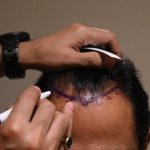ore than 2,600 NHS staff in Scotland have been forced to take time off due to long Covid, new figures show.
Freedom of information requests by the Scottish Liberal Democrats revealed at least 2,603 doctors, nurses and midwives were recorded as having taken time off due to long Covid, some for more than two years.
The vast majority of absences were seen in nurses, with 2,414 taking time off, compared to 128 doctors and 61 midwives.
NHS Greater Glasgow and Clyde suffered worst, with a total of 1,298 staff forced to take leave due to long Covid, according to the figures.
The longest recorded absence was found in the NHS Grampian area, where one member of staff was off for 957 days.
In NHS Fife, a worker spent 882 days on leave, and another in NHS Highland was side-lined for 798 days.
The total figure is likely to be higher as NHS Forth Valley did not provide the information, NHS Western Isles was unable to do so, and NHS Lothian provided data for the whole-time equivalent staff lost to long Covid.
Scottish Lib Dem leader Alex Cole-Hamilton said the data is a “damning verdict of the Scottish Government’s complete lack of care for long Covid victims”, calling on ministers to increase funding to help those with the condition.
“Long Covid is an enormously debilitating condition which disrupts and devastates lives,” he said.
“This nationalist Government’s response has been so poor that many Scots would be better off moving to England where more robust care pathways are available.
“Our NHS is already at boiling point and if this lacklustre approach from the SNP and Greens continues, we will see even more staff absences, even more pressure on services.
“Nurses and other long Covid sufferers cannot afford to be put on hold any longer without solutions.
“These sky-high absences must propel the Government into action.
“Scottish Liberal Democrats are calling on Humza Yousaf to improve funding for long Covid.
“We need to see dedicated long Covid clinics set up across the country and Scotland-wide access to physiotherapy and multi-disciplinary rehab. Otherwise, nurses and their patients will pay the price.”
The Scottish Government allocated £3 million from its £10 million long Covid support fund for the last financial year, but no further allocations have yet been announced.
NHS Grampian said it could not comment on individual cases, but that it follows nationally set absence rules.
A spokesman for NHS Greater Glasgow and Clyde said its workforce – totalling around 41,000 people – accounts for around one quarter of NHS staff in Scotland, adding: “The health and wellbeing of our staff is of paramount importance to us and throughout the pandemic we introduced a number of new interventions to support staff and managers in terms of absence, health and wellbeing, and new guidance was developed to assist in managing the previously unknown condition of long Covid.
“Through HR and occupational health teams we have expanded resources to focus on supporting those with Covid and long Covid, while introducing specific peer support as part of our wider mental health and wellbeing action plan.”
A Scottish Government spokesman said: “We recognise the significant impact long Covid can have on the health and wellbeing of those most severely affected and assessment and support is being provided across Scotland.
“We are making available £3 million from our £10 million long Covid support fund over this financial year to support NHS boards to increase the capacity of existing services, develop these into more clearly defined local pathways and provide a more co-ordinated experience.
“This is in addition to what our healthcare system – supported by record funding of more than £19 billion – is already delivering in caring for people with long Covid across our full range of NHS services.
“All NHS staff are fully supported in accordance with the Once for Scotland attendance policy where health impacts their ability to be at work.”
The Government said that for the fortnight ending May 23 2023, a daily average of 365 NHS staff were absent due to Covid-related illness – 0.20% of the total workforce.











